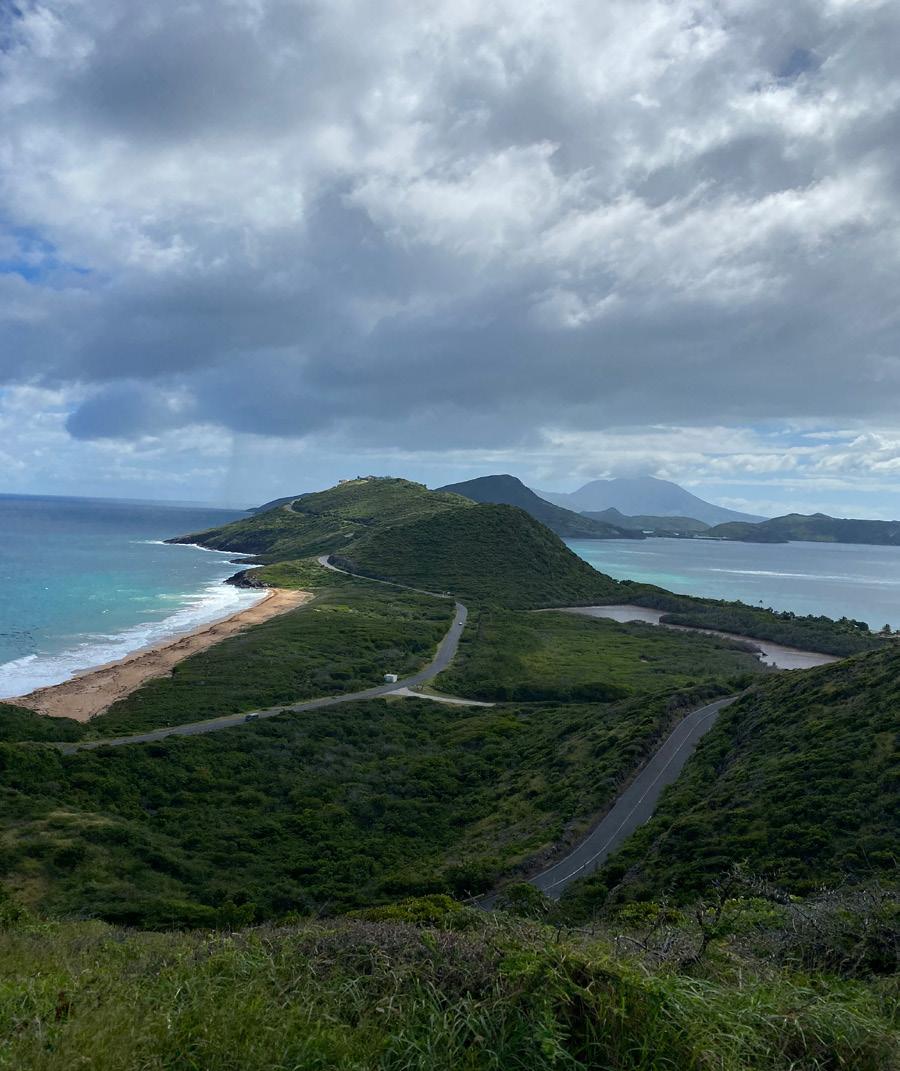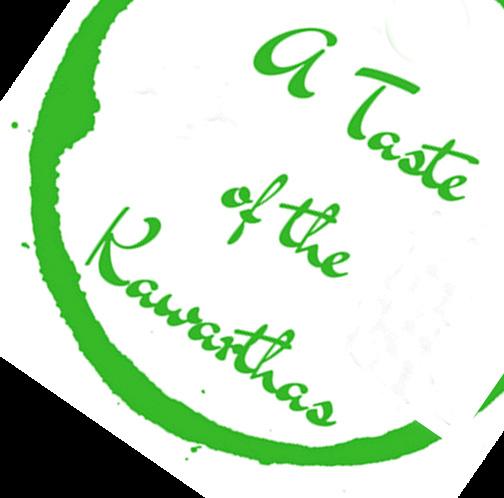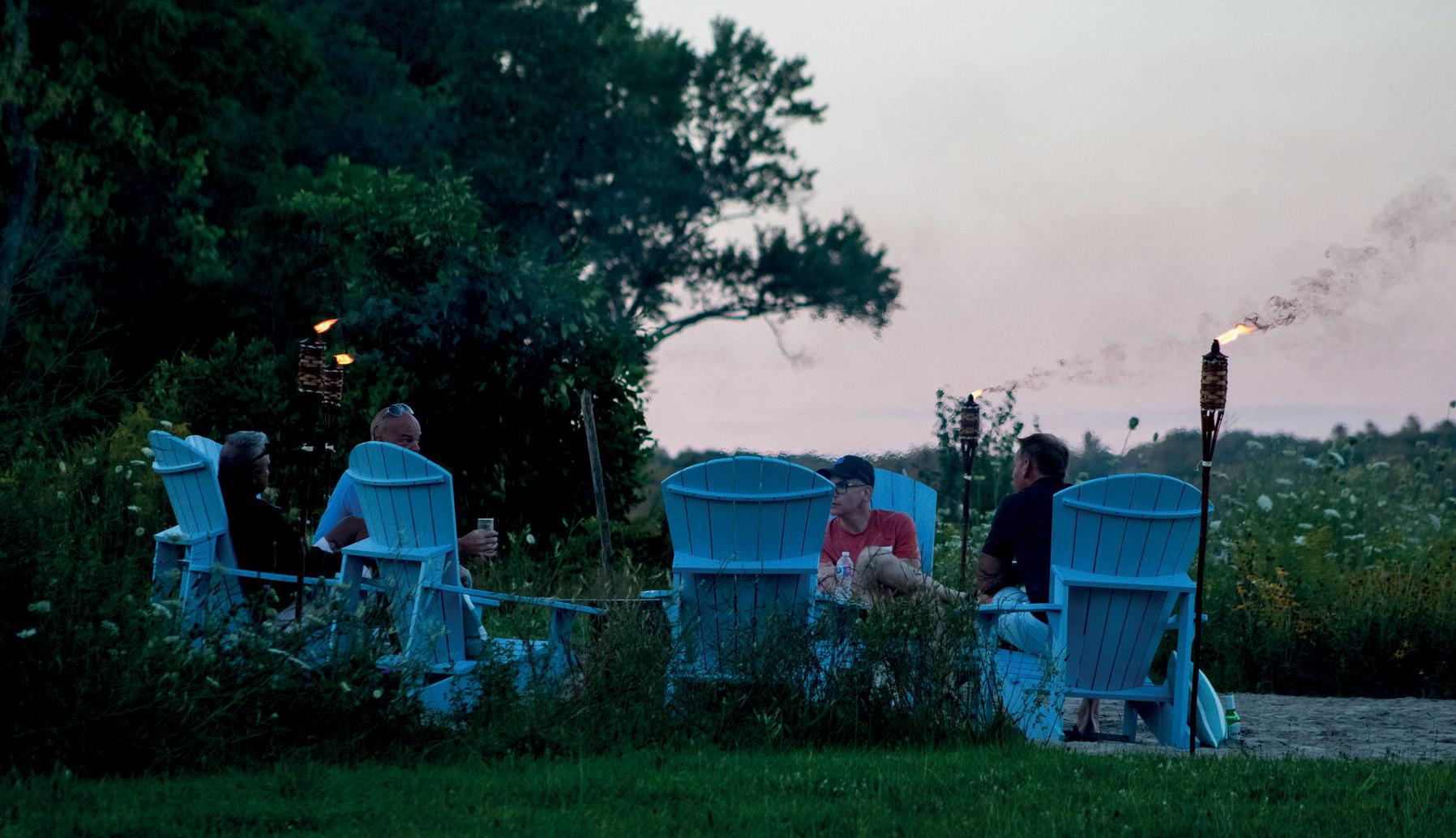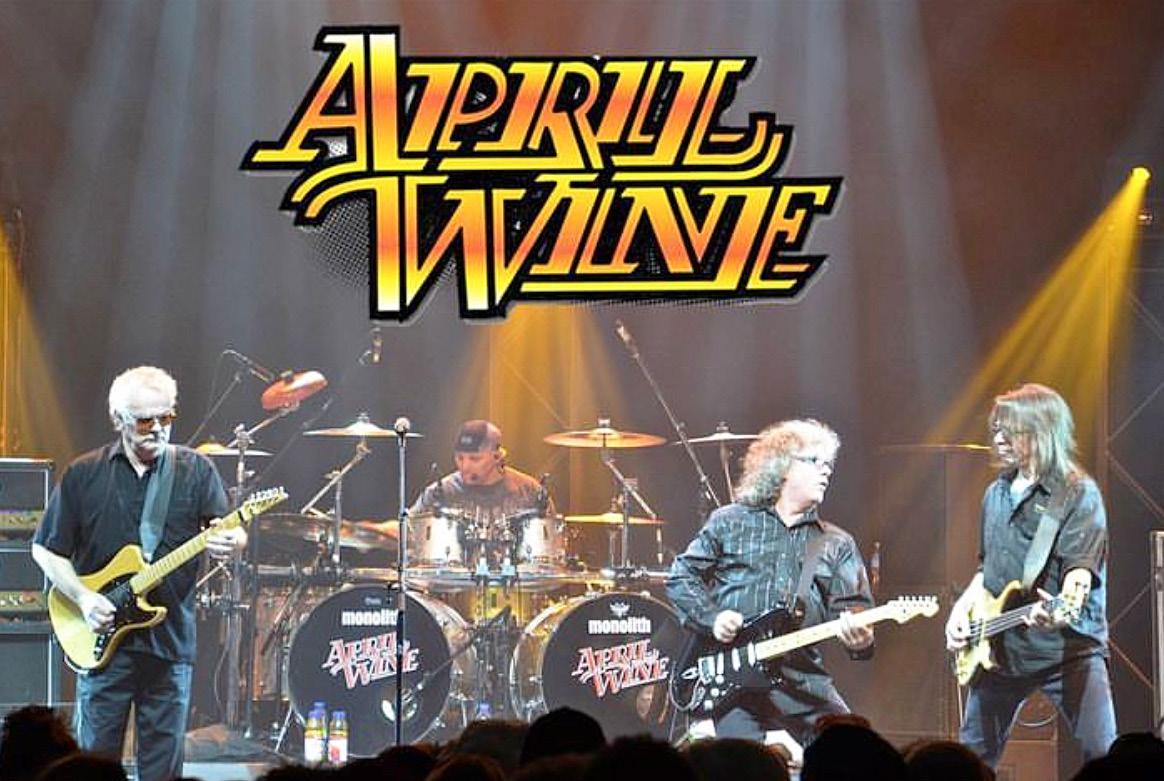
3 minute read
Myles Goodwyn Singer/Songwriter of April Wine
By Jay Cooper
Myles Goodwyn graciously granted me some of his time for this interview. I am such an admirer and fan of his work from April Wine to his new projects. April Wine’s version of ‘Bad Side of the Moon’ is the theme song for the hit series Moonshine. We needed to get a few things cleared up from the get go, as some interviews can become misconstrued and piss off the person that you interview. This is Myles Goodwyn approved!
ATOTK: Hi Myles. So nice to speak with you. You’ve played here in the Kawarthas many times.
MG: Yes, many times and I know the area very well. It is a beautiful area. My son lived in Peterborough.
ATOTK: The band will keep on touring without you on the stage and the successor; Marc Parent must have a similar voice to yours?
MG: Yes, he can sound like me. Obviously, he has his own voice. When you sing a certain song that everybody knows, you try and sing it that way. With Marc, I’ve heard him sing a lot of different songs and he sings them all effortlessly. He has a really great range. I never had a whole lot of range myself, but what’s interesting about Marc is when he accepted the challenge, he thought he was going to sound like me and cover my vocals. It was quite amazing that within a week he sent me a demo recorded on his cell phone singing April Wine songs. And it sounded like me. I was with someone when I received it and I said ‘what do you think of this’? And he said that sounds great. I asked him who’s singing and he said that’s you. I laughed and said no, that’s not me. It’s eerie – he nailed it. Marc is a wonderful guy. He’s very funny, very smart, a great singer and guitar player. It’s all very positive.
ATOTK: When you started on this journey to make great music and entertain people, it had to be organic. How did a kid from Nova Scotia actually make a dent into Canadian music back then?
MG: My musical influences go back so, so far. I saw Elvis on the Ed Sullivan in 1956 but I remember seeing that live at home on a black and white TV, so everything I saw was absorbed. In our house country music ruled so I heard all these great country songs back when country was country. I was at the perfect age to be totally swept away by such brilliant songs. I was very fortunate to be around at the best of times. I went through the Beatles, Led Zeppelin and rockabilly.
ATOTK: REO or Lover Boy thirty years ago would be playing on a smaller stage, but now in concerts with Styx and that era of bands are killing it with people going to see it, and young people too.
MG: April Wine was around before all those bands. They’re doing great and out there touring and never really stopped doing it. And that’s really important too about longevity. People have short memories and it’s important to always be there, doing something. The music was so good that you never get tired of it. The difference with April Wine is that we didn’t continue working. We broke up for about 9 years. And that’s a long time to be gone. After our last tour in 1984-85 we didn’t get together again until the early 90’s. And when you come back, it’s all changed. It’s moved on without you. Had we kept going, giving the fans what they want, we would be touring a lot more in the US than we are.
ATOTK: As far as instruments go, with the country influence in your house, did you pick up a guitar first?

MG: Yes. My mother’s family was very musical. My uncle played in a country band. They toured the East Coast. Music in our house was an influence as well, but the biggest source was from the radio. I would hear a Hank Snow song that I liked and would figure out how to play it. It was an acoustic guitar so I asked my dad for an electric guitar and he bought me one.
ATOTK: When April Wine skyrocketed to fame, did you have any control or say about where the profits were going. I’ve interviewed people who got screwed and they never recovered.
MG: When we arrived in Montreal in 1970 we didn’t have any contracts, but we hoped to get one. We got a show from Donald K Donald who was a promoter and manager and had just started Aquarius Records when they heard us. In 1968 the CRTC ruled that Canadian music would be 30 percent in programming (CanCon). Because of that there was more opportunities that weren’t there before. Labels started up, and management and the promotional side grew. We got caught up in that and were able to make a record. Consequently, our song ‘Fast Train’ did regionally well across the country. Aquarius Records signed us and other bands that didn’t have a lawyer so we signed away too much. We had to live with it.











